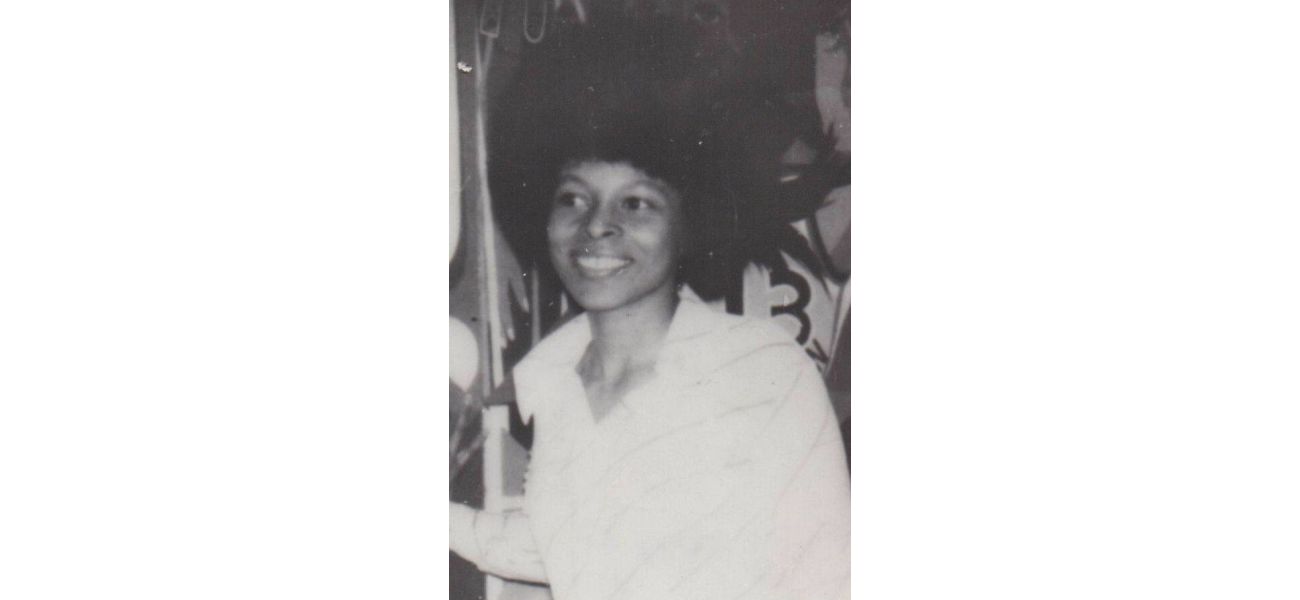New Jersey's main concern: 77-year-old Assata Shakur is the top name on their Most Wanted List.
A team united around the message of Assata.
July 3rd 2025.

In a surprising move that has caused quite a stir, the New Jersey State Police recently released their list of "Most Wanted" individuals for the year 2025. At the top of this list, to the disbelief of many, is 77-year-old Assata Shakur, also known as Joanne Chesimard.
This designation comes with a $2 million reward for anyone who can capture her, even though Shakur has been living in Cuba for decades, where she received political asylum, became a citizen, and even earned a master's degree from the University of Havana. This begs the question: Is it truly worth directing New Jersey's limited resources and political will towards a figure who has been out of their reach for so long, when there are pressing systemic issues within the state's own borders?
Shakur's past is undoubtedly controversial. In 1973, she was involved in a fatal shootout on the New Jersey Turnpike that left a State Trooper dead and another seriously injured. She was convicted of first-degree murder and sentenced to life in prison, but she managed to escape in 1979 and has been living in Cuba since 1984, where she was granted asylum.
The New Jersey State Troopers Fraternal Association has been advocating for her return for years, stating that her presence in Cuba is an "affront to every resident of our state." Even the White House, under different administrations, has cited Cuba's harboring of fugitives, including Shakur, as a point of contention in US-Cuba relations. Former President Trump used her case to further his anti-Cuba and anti-Black rhetoric in his "Strengthened Policy From the United States Towards Cuba" speech on June 30th. However, the pursuit of a 77-year-old exile, no matter how symbolic, seems like a misallocation of attention when compared to the urgent needs of New Jersey's present-day population.
Let's consider the harsh realities that demand the state's immediate and comprehensive intervention:
Persistent Racial Wealth and Income Gaps: Despite being a state known for its affluence, New Jersey has one of the most alarming racial wealth disparities in the country. According to data from the New Jersey Institute for Social Justice, the median household wealth for white families is around $662,500, while Black and Latina/o households have less than $20,000. This gap has only increased since the pandemic, highlighting a severe economic injustice. Furthermore, the median household income for white families is $110,100, while it's only $76,100 for Latina/o households and $68,900 for Black households. These are not just historical issues; they are current, debilitating inequities.
Entrenched Educational Segregation and Achievement Gaps: While New Jersey's public education system is often praised, it is plagued by deep-rooted racial and economic segregation. The state is known for having one of the most segregated school systems in the nation, funneling many minority students into underperforming schools. This concentration of poverty and racial isolation has a significant impact on academic achievement. Post-pandemic data from the NJDOE shows that, despite some overall improvements, significant disparities still exist, with districts serving predominantly Black and Hispanic students falling behind their white peers in academic recovery.
Aging and Inadequate Infrastructure: The state's physical infrastructure is in dire need of repair, which puts a substantial financial burden on its residents and raises concerns for public safety and economic growth. On average, New Jersey drivers spend $713 per year on vehicle repairs and inefficiencies caused by deteriorating roads. A concerning 7.8% of bridges in the state are classified as structurally deficient. Upgrading the state's drinking water systems is estimated to cost $8.6 billion, and its public schools require a staggering $1.58 billion for essential facility upgrades and maintenance.
Persistent Health Disparities: Health outcomes in New Jersey are significantly impacted by race and socioeconomic status. Black and Latina/o residents face disproportionately higher uninsured rates, leaving them at risk of financial ruin in case of a medical emergency. Black residents are more than twice as likely to lack health insurance compared to white residents, while Latina/o residents are six times more likely to be uninsured. Additionally, New Jersey has one of the highest maternal death rates in the country, with Black mothers seven times more likely than white mothers to die from pregnancy-related complications.
Challenges in Affordable Housing and Housing Instability: The housing instability crisis primarily affects racial and ethnic minorities and low-income households in New Jersey. Financial barriers are the main obstacle to secure safe and adequate housing. Black and Hispanic residents are more than twice as likely as white and Asian residents to face housing challenges. Shockingly, more than one in ten New Jersey residents lack stable housing or live in fear of losing their homes, highlighting the urgent need for affordable housing solutions and robust support systems.
The decision to make Shakur, a 77-year-old woman living under political asylum in Cuba, the top fugitive in New Jersey, while these pressing issues continue to affect the state's residents, is telling of a misguided sense of priorities. It suggests that the state would rather focus on a historical grievance, however deeply felt by some, than address the immediate needs of hundreds of thousands of New Jerseyans struggling with economic disenfranchisement, educational inequity, crumbling infrastructure, inadequate healthcare, and housing insecurity.
A truly just and effective government would prioritize addressing the tangible suffering within its own communities, rather than chasing after ghosts in international waters.
#TeamAssata
RELATED CONTENT: The Enduring Fire: Revisiting Malcolm X's Vision For Black Liberation On What Would Have Been His 100th Birthday
This designation comes with a $2 million reward for anyone who can capture her, even though Shakur has been living in Cuba for decades, where she received political asylum, became a citizen, and even earned a master's degree from the University of Havana. This begs the question: Is it truly worth directing New Jersey's limited resources and political will towards a figure who has been out of their reach for so long, when there are pressing systemic issues within the state's own borders?
Shakur's past is undoubtedly controversial. In 1973, she was involved in a fatal shootout on the New Jersey Turnpike that left a State Trooper dead and another seriously injured. She was convicted of first-degree murder and sentenced to life in prison, but she managed to escape in 1979 and has been living in Cuba since 1984, where she was granted asylum.
The New Jersey State Troopers Fraternal Association has been advocating for her return for years, stating that her presence in Cuba is an "affront to every resident of our state." Even the White House, under different administrations, has cited Cuba's harboring of fugitives, including Shakur, as a point of contention in US-Cuba relations. Former President Trump used her case to further his anti-Cuba and anti-Black rhetoric in his "Strengthened Policy From the United States Towards Cuba" speech on June 30th. However, the pursuit of a 77-year-old exile, no matter how symbolic, seems like a misallocation of attention when compared to the urgent needs of New Jersey's present-day population.
Let's consider the harsh realities that demand the state's immediate and comprehensive intervention:
Persistent Racial Wealth and Income Gaps: Despite being a state known for its affluence, New Jersey has one of the most alarming racial wealth disparities in the country. According to data from the New Jersey Institute for Social Justice, the median household wealth for white families is around $662,500, while Black and Latina/o households have less than $20,000. This gap has only increased since the pandemic, highlighting a severe economic injustice. Furthermore, the median household income for white families is $110,100, while it's only $76,100 for Latina/o households and $68,900 for Black households. These are not just historical issues; they are current, debilitating inequities.
Entrenched Educational Segregation and Achievement Gaps: While New Jersey's public education system is often praised, it is plagued by deep-rooted racial and economic segregation. The state is known for having one of the most segregated school systems in the nation, funneling many minority students into underperforming schools. This concentration of poverty and racial isolation has a significant impact on academic achievement. Post-pandemic data from the NJDOE shows that, despite some overall improvements, significant disparities still exist, with districts serving predominantly Black and Hispanic students falling behind their white peers in academic recovery.
Aging and Inadequate Infrastructure: The state's physical infrastructure is in dire need of repair, which puts a substantial financial burden on its residents and raises concerns for public safety and economic growth. On average, New Jersey drivers spend $713 per year on vehicle repairs and inefficiencies caused by deteriorating roads. A concerning 7.8% of bridges in the state are classified as structurally deficient. Upgrading the state's drinking water systems is estimated to cost $8.6 billion, and its public schools require a staggering $1.58 billion for essential facility upgrades and maintenance.
Persistent Health Disparities: Health outcomes in New Jersey are significantly impacted by race and socioeconomic status. Black and Latina/o residents face disproportionately higher uninsured rates, leaving them at risk of financial ruin in case of a medical emergency. Black residents are more than twice as likely to lack health insurance compared to white residents, while Latina/o residents are six times more likely to be uninsured. Additionally, New Jersey has one of the highest maternal death rates in the country, with Black mothers seven times more likely than white mothers to die from pregnancy-related complications.
Challenges in Affordable Housing and Housing Instability: The housing instability crisis primarily affects racial and ethnic minorities and low-income households in New Jersey. Financial barriers are the main obstacle to secure safe and adequate housing. Black and Hispanic residents are more than twice as likely as white and Asian residents to face housing challenges. Shockingly, more than one in ten New Jersey residents lack stable housing or live in fear of losing their homes, highlighting the urgent need for affordable housing solutions and robust support systems.
The decision to make Shakur, a 77-year-old woman living under political asylum in Cuba, the top fugitive in New Jersey, while these pressing issues continue to affect the state's residents, is telling of a misguided sense of priorities. It suggests that the state would rather focus on a historical grievance, however deeply felt by some, than address the immediate needs of hundreds of thousands of New Jerseyans struggling with economic disenfranchisement, educational inequity, crumbling infrastructure, inadequate healthcare, and housing insecurity.
A truly just and effective government would prioritize addressing the tangible suffering within its own communities, rather than chasing after ghosts in international waters.
#TeamAssata
RELATED CONTENT: The Enduring Fire: Revisiting Malcolm X's Vision For Black Liberation On What Would Have Been His 100th Birthday
[This article has been trending online recently and has been generated with AI. Your feed is customized.]
[Generative AI is experimental.]
0
0
Submit Comment





